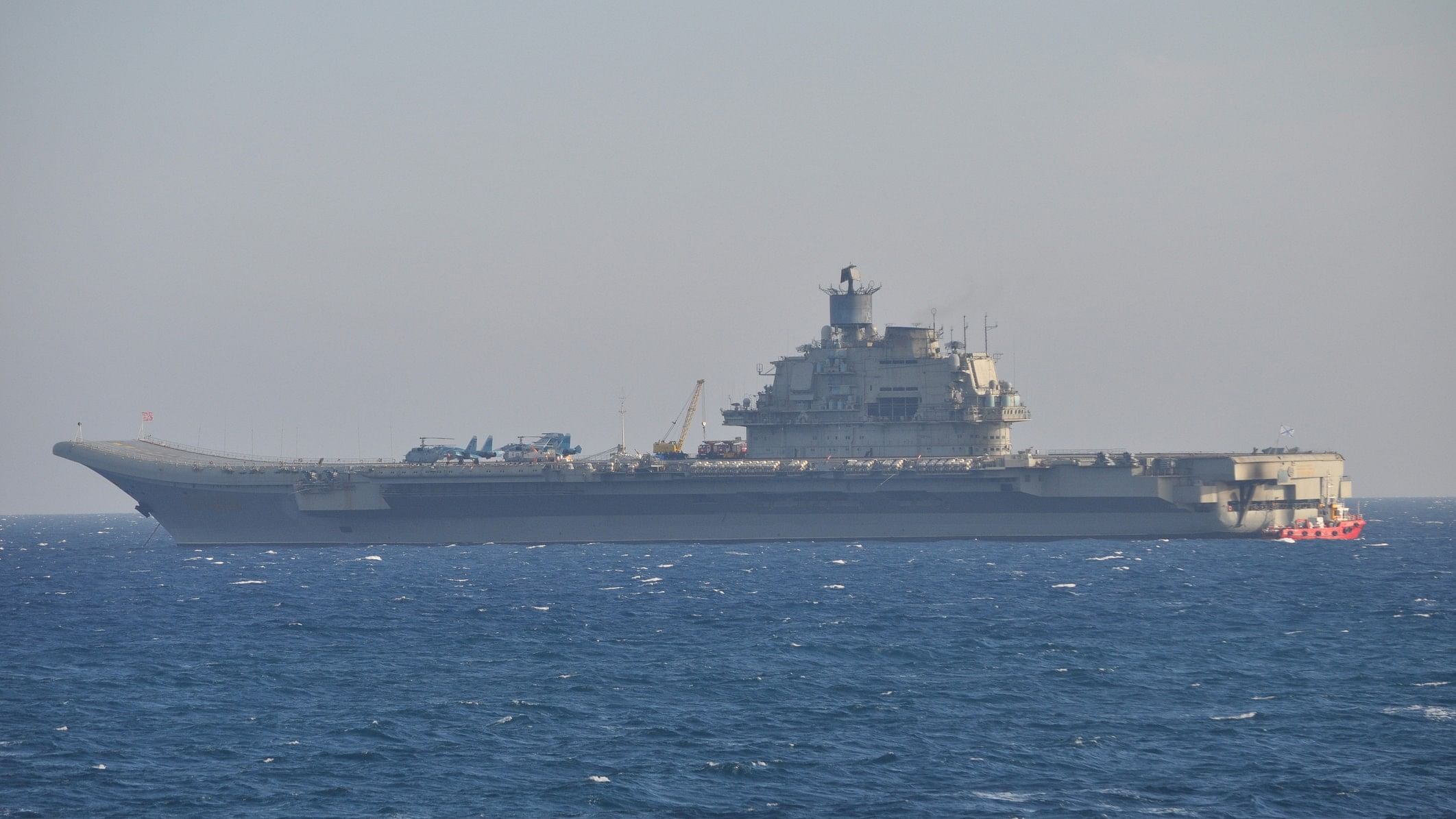
Representative image showing a warship at sea
Credit: iStock Photo
Washington: China is making inroads into key choke points along the Indian Ocean, obstructing the free maritime routes, and threatening the national security and economic interests of both the US and its friends and allies in South Asia, an influential American lawmaker has said.
The Indian Ocean is a crucial channel for global trade, an estimated 80 per cent of maritime oil trade and 40 per cent of world trade passes through the Indian Ocean, Congresswoman Young Kim said during a Congressional hearing here.
Young, who is the chairperson of the Subcommittee on Indo-Pacific in the House Foreign Affairs Committee, also said on Tuesday, “We cannot forget the significance of Indo in the Indo-Pacific.” Explaining how the South Asian region faces a dynamic geopolitical landscape that presents challenges for the US policy objectives, she said, South Asia holds “immense significance” for the US foreign policy and national security interests.
Young listed all the recent Chinese development projects in recent years -- Chinese ports in Pakistan and Sri Lanka, military installations in Djibouti and infrastructure investments in the Maldives and drew attention to how the Chinese Communist Party (CCP) is making inroads into key choke points along the maritime routes and obstructing the right to freely navigate the Indian Ocean waters.
“These threaten the US national security and economic interests and those of our friends and allies in the region,” Young said.
The resource-rich South China Sea in the Indo-Pacific region is widely seen as a potential flashpoint for global conflict.
China claims most of the South China Sea as its own, while The Philippines, Vietnam, Malaysia, Brunei and Taiwan have counterclaims over the maritime area.
Though the US is not a claimant to the South China Sea, it says the waters are crucial to its national interest of guaranteeing free passage through seas worldwide.
The US Navy regularly conducts freedom of navigation operations in the South China Sea, saying the US is “defending every nation’s right to fly, sail, and operate wherever international law allows.” It was not the first time that the Subcommittee on Indo-Pacific was dealing with the topic. Last month it held a hearing on the Indo-Pacific budget and the CCP aggression in the South China Sea and the Taiwan Strait.
“The Indo-Pacific region’s economic, geographical, and military significance makes it an essential arena for US-China competition. ... During this time, we must choose to show up for our allies, or risk ceding our leadership to the CCP,” she had said last month.
Recalling that hearing, Young further said, “We cannot forget the significance of Indo in the Indo-Pacific. The CCP has sparked border conflicts along the Line of (Actual) Control with India and its submarines and warships regularly sail in the Indian Ocean.” Pointing out that the CCP is a top trading partner for Bangladesh, Nepal, Sri Lanka, Pakistan and Afghanistan, all countries that surround “our strategic partner India,” Young said, “The PLA's presence is also intensifying both along the Indian border and in the Indian Ocean.” Aid and cooperation play a pivotal role not only in advancing US interests in South Asia but also in enhancing their prosperity and keeping the region free and open, Young said. “Without greater US support, our allies and friends could be forced to accept further trade and investment from the CCP.”
Young said she is “particularly concerned” about the growing relationship between CCP and the Maldives, which she described as a “key US security partner in the Indian Ocean.” The Maldives, having received several large CCP investments including $200 million for the China-Maldives Friendship Bridge, is $1.4 billion in debt to the CCP, she said, adding, “During the Maldives president's visit with Xi Jinping in January, the two countries signed an additional 20 bilateral agreements.”
Assistant Secretary of State for South and Central Asia Donald Lu said that the military relationship between the Maldives and the People's Republic of China is only now starting. “We have the opportunity to shape that relationship through competition if you're the Maldives,” he said.